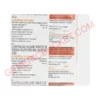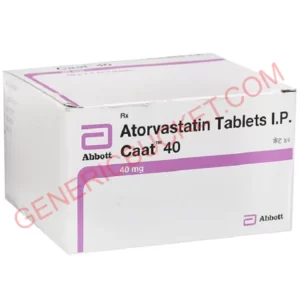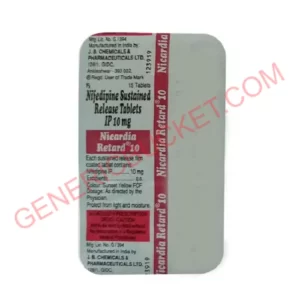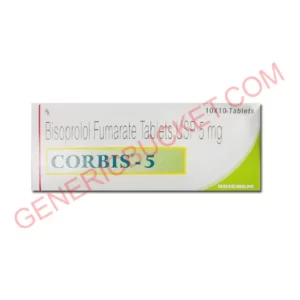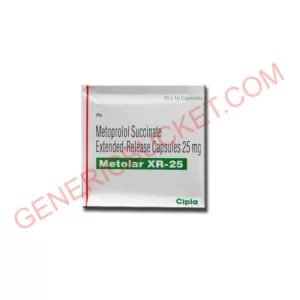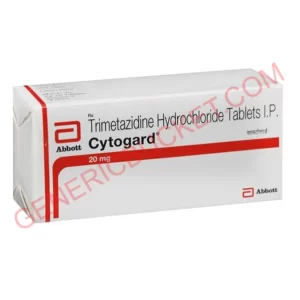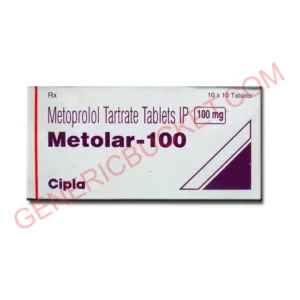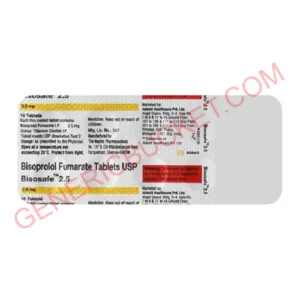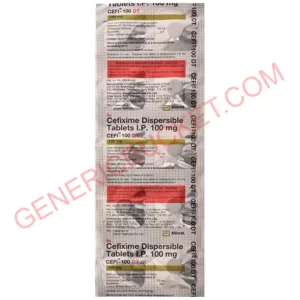Valprol -CR 300 Tablet (Sodium Valproate 200mg/ Valproic Acid 87mg)
$49.00 – $96.00Price range: $49.00 through $96.00
| Country of Origin | India |
|---|---|
| Dosage Form | Tablets |
| Generic Name | Sodium Valproate |
| Indication | Epilepsy/Seizures |
| Manufacturer | Intas Pharmaceuticals Ltd |
| Packaging | 15 tablets in 1 strip |
| Composition | Sodium Valproate (200mg) + Valproic Acid (87mg) |
| Valprol -CR 300 Tablet (Sodium Valproate 200mg/ Valproic Acid 87mg) | |||
| Pack Size | Price | Price/Unit | Add To Cart |
| 60 Tablet/s | $49.00 (0.82/unit) | $0.82 | |
| 90 Tablet/s | $70.00 (0.78/unit) | $0.78 | |
| 135 Tablet/s | $96.00 (0.71/unit) | $0.71 | |
INTRODUCTION
Valprol CR 300mg contain Sodium valproate which belongs to a group of medicine called anti-convulsant or anti-epileptic agents. This medicine is used to treat epilepsy (fits) in adults and children. Epilepsy may occur as a result of a genetic disorders or an acquired brain injury such as a trauma or stroke, in which nerve cells activity in the brain is disturbed, causing seizures. It control seizures or fits by decreasing the abnormal and excessive activity of the nerve cells in the brain.
Valprol CR 300mg must be taken with or without food. It should be swallowed whole with water. Do not crush or chew the medicine. Before taking this medicine tell your doctor if you have ever had kidney disease, heart disease, liver problems. Pregnant and breastfeeding women should consult their doctor before taking this medicine. The most common side effects are nausea, vomiting, stomach ache, diarrhoea, double vision, hair loss, weight gain, headache, loss of appetite, tremor.
USES OF VALPROL CR 300MG
- Treat epilepsy (fits) in adults and children
HOW VALPROL CR 300MG WORKS
VALPROL CR 300MG control seizures or fits by decreasing the abnormal and excessive activity of the nerve cells in the brain.
DIRECTIONS FOR USE
Always take VALPROL CR 300MG exactly as your doctor has told you. This medicine must be taken with or without food. The dose is normally split and given half in the morning and half in the evening. It should be swallowed whole with water. Do not crush or chew the medicine.
SIDE EFFECTS OF VALPROL CR 300MG
COMMON
- Nausea, vomiting, stomachache or diarrhoea
- Swelling of gums or sore mouth
- Fainting
- Hearing loss
- Double vision
- Nail and nail bed disorders
- Skin problems such as rashes
- Hair disorders (changes in texture, colour, or growth), hair loss
- Increased levels of some hormones (androgen), which may lead to increased hair growth on the face, breasts or chest, acne, or thinning hair
- Change in women’s periods and increased hair growth in women
- Breast enlargement in men
- Swelling of the feet and legs (oedema)
- Obesity, weight gain
- Headache
- Hallucinations
- Aggression, agitation, disturbance in attention, abnormal behaviour, restlessness/hyperactivity, and learning disorder
- Tingling or numbness in the hands and feet
- Lowering of normal body temperature
- Abnormal blood clotting factors
- Muscle pain and weakness (rhabdomyolysis)
- Bone disorders such as osteopenia and osteoporosis
- Change levels of liver enzymes
- Male infertility
RARE
- Allergic reaction (including rash, joint pain, fever, swallowing or breathing problems, swelling of your lips, face, throat, or tongue)
- Liver problems and problems of the pancreas
- Jaundice (yellowing of the skin or white of the eye)
- Loss of appetite
- Worsening of your fits or general feeling of being unwell
- Blistering or bleeding of the skin around the lip, eye, mouth, nose, and genital, flu-like symptoms, and fever (Stevens-Johnson syndrome)
- Severe blistering rash where layers of the skin may peel off to leave large areas of raw exposed skin over the body, feeling of being generally unwell, fever, chills, and aching muscles (Toxic epidermal necrolysis)
- Bruising more easily and getting more infections than usual(thrombocytopenia). Fall in the number of white blood cell, bone marrow depression or another condition that affect red blood cell, white blood cell and platelet (pancytopenia)
- Blood clotting problems
- Change in mood, loss of memory, lack of concentration and deep loss of consciousness (coma)
- Underactive thyroid gland
- Breathing difficulty and pain due to inflammation of the lung (pleural effusion)
- Change in the amount of ammonia in the blood
- Tremor
- Rapid, uncontrollable movement of the eyes
- Increase in the number and severity of convulsion
HOW TO MANAGE SIDE EFFECTS
Nausea and vomiting:
Try taking this medicine with, or just after, a meal or snack and stick to simple meals and do not eat rich or spicy food.
Stomach pain:
Try to rest and relax. Eat and drink slowly or have smaller and frequent meal. Applying heat pad or covered hot water bottle on your stomach may also help. If still pain persists, speak to your doctor.
Diarrhoea:
Drink lot of fluid such as water or squash, to avoid dehydration. Do not take any other medicines without talking to a doctor.
Headache:
Apply hot or cold-water bag on your head. Take rest in a quiet and dark room. Drink tea or coffee.
Fever:
Drink plenty of fluids and water. Avoid taking cold baths or showers.
WARNING & PRECAUTIONS
PREGNANCY
VALPROL CR 300MG is not recommended for use in pregnant women unless necessary. Discuss the risks and benefits with your doctor.
BREASTFEEDING
VALPROL CR 300MG should be used with caution in breast feeding women. Consult your doctor before taking this medicine.
DRIVING AND USING MACHINES
Do not drive or operate any machine while taking this medicine since it may cause sleepiness.
ALCOHOL
Consumption of alcohol is not recommended during treatment with VALPROL CR 300MG.
KIDNEY
VALPROL CR 300MG should be used with caution in patients suffering from active kidney diseases. Before taking, this medicine consult your doctor for advice.
LIVER
VALPROL CR 300MG is not recommended in patients with active liver diseases. Before taking, this medicine consult your doctor for advice.
ALLERGY
Do not take VALPROL CR 300MG if you are allergic (hypersensitive) to sodium valproate or any other ingredients in this medicine.
OTHERS
Tell your doctor if you have or had a condition such as,
- Rare illness called porphyria
- Metabolic disorder (urea cycle disorder)
- Genetic problem caused by a mitochondrial disorder (Alpers-Huttenlocher syndrome)
- Diabetes
- Carnitine palmitoyltransferase type II deficiency
- Brain disease or a metabolic condition affecting your brain
- Illness called systemic lupus erythematosus (SLE)
INTERACTIONS
Talk to your doctor if you are taking,
- Salicylates such as aspirin (used to treat pain and inflammation)
- Phenobarbital, primidone, phenytoin, carbamazepine, rufinamide, topiramate, acetazolamide, lamotrigine and felbamate (used to treat fits (epilepsy))
- Warfarin (used for thinning the blood)
- Zidovudine, protease inhibitor such as lopinavir and ritonavir (used to treat HIV infection and AIDS)
- Temozolomide (used to treat cancer)
- Monoamine oxidase inhibitor (MAOI) such as moclobemide, selegiline, linezolid (used to treat depression)
- Quetiapine, diazepam, and olanzapine (used to treat schizophrenia, bipolar disorder, and depression)
- Nimodipine
- Propofol (used for anaesthesia)
- Oestrogen-containing products including some birth control pills
- Mefloquine and chloroquine (used to prevent and treat malaria)
- Cimetidine (used to treat stomach ulcers)
- Carbapenem agents such as imipenem, meropenem, rifampicin and erythromycin (used to treat bacterial infections)
- Cholestyramine (used to lower blood fat level)
Related products
Heart & Blood Pressure
Angina Pectoris Anti-Anginals
Angina Pectoris Anti-Anginals
Angina Pectoris Anti-Anginals
Angina Pectoris Anti-Anginals
Anti Malarial
Antibiotics
Angina Pectoris Anti-Anginals
Angina Pectoris Anti-Anginals
Heart & Blood Pressure
Antibiotics

